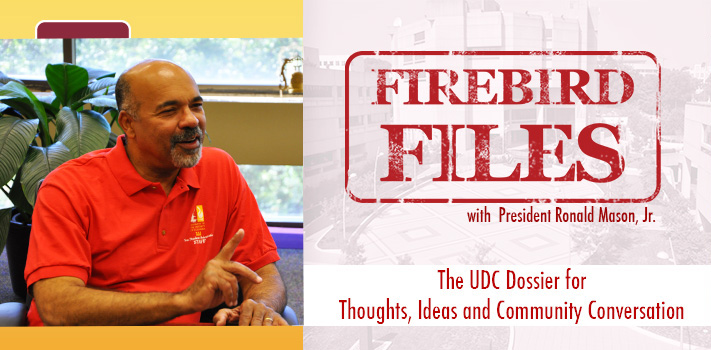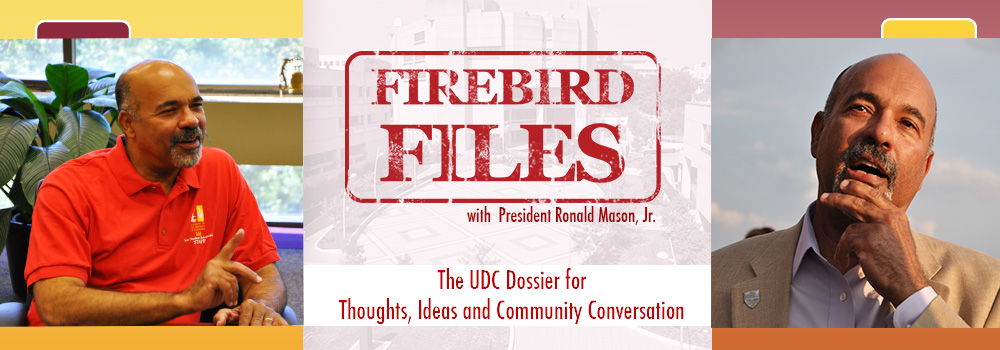
“Unfinished Business: Thoughts on the Nation’s Future”

“Unfinished Business: Thoughts on the Nation’s Future”
Last October, one of my students – a young Black man – held open a door for an overburdened woman with a baby carriage so that she might more easily enter the ATM lobby of a bank. This thoughtful gesture was met with someone calling 9-1-1, saying that my student and his friend “looked suspicious.” Responding to the call and without asking questions, police wrangled an innocent young man to the ground and detained him.
Similarly, storeowners in trendy Georgetown guard against their “dis-ease “of what they deem as suspicious- looking shoppers with a downloaded app to track and share information about potential threats. It’s somehow more than just coincidence that seventy percent of the people they thought might steal something are Black.
Multiplied by thousands, these kinds of responses mirror an unsettling reflection of Washington, DC. When counted in the millions, we’re looking at the face America.
Being Black in America is a perilous proposition. It is dangerous when you are walking and unsafe when you are driving. It is dangerous when you talk, and even more risky when you don’t speak at all. It is dangerous when the police drive up, and just as chancy in front of a jury. If you are Black, you are more likely to be stopped, more likely to be arrested, and more likely to go to jail. When you are Black, you are more likely to serve time in jail, even if you are innocent.
It has always been that way in America. The foundation of slavery was to create a system that stripped Black people of their inalienable human rights. And with the abolishment of slavery, Jim Crow continued to deny Black people the means to create and accumulate wealth. And today, despite tremendous opportunities for scores of African-Americans to advance, there still remains hugely disproportionate numbers of black people trapped in a perpetual cycle of poverty and despair because we turn a blind eye to the true cause of their unique condition – Being Black in America.
Whether conscious or otherwise, the 911 calls, apps, texts, education reform treadmills, high rent and a low commitment to justice, conspire to protect the legacy of white benefits from the past by denying black people a fair opportunity to build a future.
It is not surprising that a recent Gallup survey showed that Black students who attend Historically Black Colleges and Universities have a greater sense of well-being than their counterparts at predominately white schools. On the whole, the latter are a little safer for a little longer, a little more understanding of their place in this nation, and in the end a little better equipped to compete in a world that is for them, is a very real way, dangerous. We are fortunate that HBCUs continue to serve America in this way because, as institutional reflections of the people they primarily serve, their future is equally challenged.
Fortunately, my student and his friend survived this encounter with America; sadly, too many others like him have not. The experiment that is our nation, a land of many lands that represents the people of many peoples, has yet to be proven. While it is written on paper, there remains much work to be done. The question is not one of resources or tools, but whether we have the enlightened self-interest and political will to bring our nation’s actions in line with its ideals. The matter of how Black people are viewed and consequently treated needs to be addressed. The institutions that serve America by serving them, is the linchpin, the true measure of our ability to be whom and what we claim we are. As the public University in the Nation’s Capital, the University of the District of Columbia stands ready to initiate the dialogue.
Until next time…